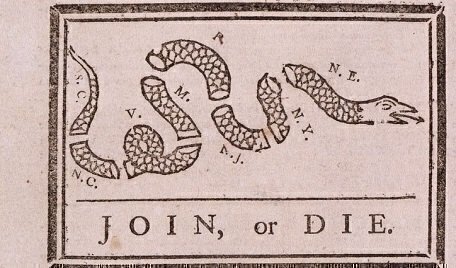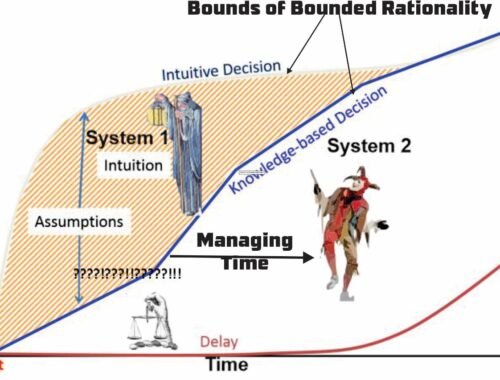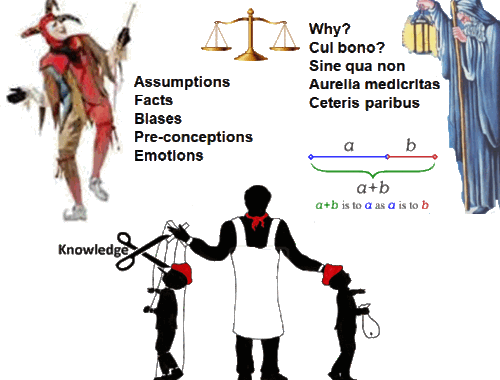
The Grand Inquisitor on the Nature of Man: Totalitarian vs. Liberty
But it is Thyself Thou hast to thank. Under our rule and sway all will be happy, and will neither rebel nor destroy each other as they did while under Thy free banner. Oh, we will take good care to prove to them that they will become absolutely free only when they have abjured their freedom in our favor and submit to us absolutely. Thinkest Thou we shall be right or still lying? They will convince themselves of our rightness, for they will see what a depth of degrading slavery and strife that liberty of Thine has led them into. Liberty, Freedom of Thought and Conscience, and Science will lead them into such impassable chasms, place them face to face before such wonders and insoluble mysteries, that some of them—more rebellious and ferocious than the rest—will destroy themselves; others—rebellious but weak—will destroy each other; while the remainder, weak, helpless and miserable, will crawl back to our feet and cry: “‘Yes; right were ye, oh Fathers of Jesus; ye alone are in possession of His mystery, and we return to you, praying that ye save us from ourselves!” Receiving their bread from us, they will clearly see that we take the bread from them, the bread made by their own hands, but to give it back to them in equal shares and that without any miracle; and having ascertained that, though we have not changed stones into bread, yet bread they have, while every other bread turned verily in their own hands into stones, they will be only to glad to have it so. Until that day, they will never be happy. And who is it that helped the most to blind them, tell me? Who separated the flock and scattered it over ways unknown if it be not Thee? The Grand Inquisitor to Jesus.
I was fortunate to take the honors course for Political Science at West Point. Our instructor, an Air Force major, was fantastic. One of the texts that he has us read was The Grand Inquisitor on the Nature of Man, an extract from The Brothers Karamazov, an excellent book. Dostoyevsky was a superb observer of the human condition and the skill to translate his observations into literature. While at times long and dense, his books provide an insightful window into humanity. Perhaps because I had a concentration in Russian Area studies (language, history, geography, culture, and politics) Dostoyevsky and the Grand Inquisitor made a lasting impression.
Britannica writes:
“In 1847 Dostoyevsky began to participate in the Petrashevsky Circle, a group of intellectuals who discussed utopian socialism. He eventually joined a related, secret group devoted to revolution and illegal propaganda. It appears that Dostoyevsky did not sympathize (as others did) with egalitarian communism and terrorism but was motivated by his strong disapproval of serfdom. On April 23, 1849, he and the other members of the Petrashevsky Circle were arrested.”
“In Siberia Dostoyevsky experienced what he called the “regeneration” of his convictions. He rejected the condescending attitude of intellectuals, who wanted to impose their political ideas on society, and came to believe in the dignity and fundamental goodness of common people.”
He wrote The Brothers Karamazov, perhaps his pinnacle work, in 1880, about a year before he died, a year before People’s Will (Narodnaya Volya) assassinated Tsar Alexander II. This period is fascinating in Russian history. Alexander engaged in some reforms and started transforming Russian society, but it was still brutal and repressive. His son’s (Alexander III, the last Russian Tsar) Prime Minister, Pyotr Arkadyevich Stolypin, took these reforms even farther until his assassination in 1911, although some of his actions—which I suspect he thought the end justified the means—alienated the moderate right. A revolutionary assassinated him. Some historians suspect the Marxists assassinated him because they were afraid his reforms would undercut their revolutionary support.
I suspect there are some parallels with Russia in 1890-1917 and the US today. Substitute the founders of the Republic for Jesus and the social justice movement for the Grand Inquisitor in the opening quote and I think we have a good proxy for the situation in the US today. The founders tried to give us liberty and we, the citizens, squandered it, and the modern inquisitors seek to remove liberty and impose their guidance and protection.
 Now, the founders clearly were not infallible. The existence of slavery in the Republic proves that. But they also got quite a few things right and understood human nature. This understanding is perhaps why slavery survived in the Republic. They were left with a hard choice: form a united republic or see the states break apart. They decided unity (remember the join or die snake?). Franklin created it in 1754, and he and the other founders understood it was still valid in 1788. 200+ years later, we can castigate them, but they made a difficult decision to create a united federal republic with a flawed compromise that many found distasteful, but necessary. Eighty years later, their descendants rectified the decision.
Now, the founders clearly were not infallible. The existence of slavery in the Republic proves that. But they also got quite a few things right and understood human nature. This understanding is perhaps why slavery survived in the Republic. They were left with a hard choice: form a united republic or see the states break apart. They decided unity (remember the join or die snake?). Franklin created it in 1754, and he and the other founders understood it was still valid in 1788. 200+ years later, we can castigate them, but they made a difficult decision to create a united federal republic with a flawed compromise that many found distasteful, but necessary. Eighty years later, their descendants rectified the decision.
The question is, is Trump Alexander II, Alexander III, Stolypin, or Rasputin? The social justice movement, as I have shown in several blogs, are Marxists. So, who is Lenin and who is Stalin and who is Trotsky in today’s unfolding drama?
Lenin and Stalin created evil from the utopia that Marx envisioned. Like the founders, I think he sought to create good. But unlike them, I suspect he did not truly understand human nature. Lenin, the Grand Inquisitor, did, or at least thought he did, and created the Soviet Union to manifest the Grand Inquisitor’s view. Be interesting to learn whether Lenin read Dostoyevsky.






2 Comments
Pingback:
Pingback: